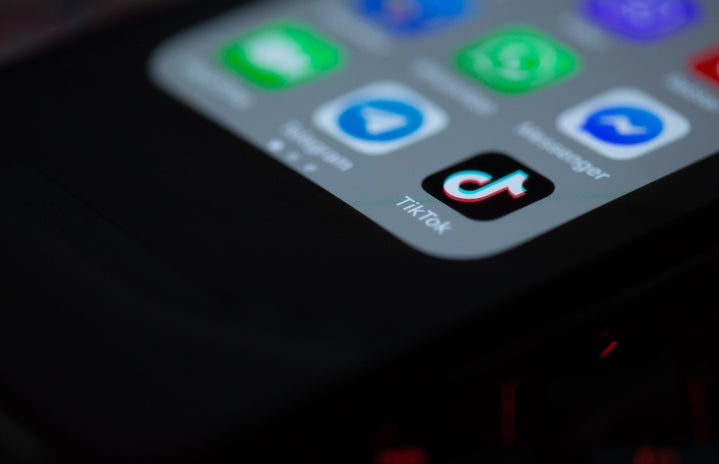Close your eyes and imagine this:
Endless scrolling,
Tailored content,
A whole generation in comedic and creative collaboration!
TikTok. I’m talking about TikTok.
Stop and think about that for a second. We spend hours upon hours a day mindlessly and unconsciously scrolling, absorbing a collection of content that drastically varies from one person to the next. But for what? What do we gain from this collective daily habit we have all adopted as a new but crucial pillar to our social lives?
Let’s get more specific. Recently, and still in the midst of the COVID-19 pandemic, universities have opened their virtual doors to a new school year. This reopening has shoved students (myself included) into a pit of emotional reactions and anticipative behaviours for the coming semester. Our previous knowledge of education, peer interaction, studying, note taking, group work, and learning has been altered and challenged. This is a stressful process.
How can we name the complicated emotions we are collectively feeling?
I asked university students, ranging from 18-22 years old, this question through other social media platforms like Instagram and Facebook. Some of the emotional responses that were associated with the start of the school year were:
-
Overwhelmed
-
Nervous
-
Weird
-
Irritated
-
Stressed
-
Scared
-
Excited
-
Lonely
How do these emotional states affect the content we like on TikTok and, as an extension, the content we generate and consume on our feeds?
The same students reported on the various “sides” of TikTok they were on. Despite the looming emotional tension students carry with them in these early stages of the semester, none of these participants found themselves on horribly depressing or stress-inducing sides of TikTok. Rather, they reported the opposite. Some notable mentions of the sides of TikTok our peers have stumbled onto are Draco Malfoy TikTok (many times over), Frog TikTok, Anything but Straight TikTok, Home Renovation TikTok, Crochet TikTok and, Harry Potter TikTok a few more times. It is clear that we don’t turn to TikTok and other social media platforms as a way to remind us of our emotional state but use it as a coping mechanism that functions to numb, distract and entertain.
TikTok is a corner of our current society that provides laughter and connection. Very Well Mind writer, Elizabeth Scott, explains the many benefits that laughter has on stress management. One notable benefit identified by Scott is the function laughter has to provide a physical and mental release. It is crucial to release internal tension so it does not intrude on other aspects of life such as academic performance, confidence, and sleeping patterns. If it is TikTok that provides you with those laughs, give yourself some time to engage in that platform and release whatever has been clawing inside.
But, and it’s a big but, we should not solely rely on TikTok and other social media platforms for the comedic relief in our lives. Forbes writer, Tom Ward, distinguishes that the transition from normal to problematic social media use occurs when users depend on the reward of social media to motivate their day-to-day actions. This reward could look like comments, shares, and likes, but it can also mean successfully detaching from the very real emotions we feel at the expense of our current reality. We should not numb our stress, we should understand and manage it. It is important that we are aware of this distinction. Are we going to TikTok because we need a laugh or because we need to escape? Are we spending 30 minutes on TikTok or three hours?
It is okay to engage in that type of activity, but in moderation. TikTok should not be the one-stop destination for our study breaks but, rather, a distant land we can look forward to after we have completed the necessary work for that day. It is painfully easy to reach for your phone the moment you need a break in your school-work schedule. But there are other, more productive, strategies that students can use to fill their study breaks. Some examples include going for a walk outside or engaging in other forms of physical activity, calling a friend, or packing up your supplies and moving to a different study location.
Bottom line is, we are all trying to rediscover what it means to be a student in this virtual educational setting. We must rely on each other, and TikTok if we must, to navigate the uncertainty that lies ahead.



